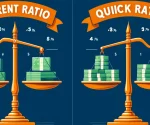The education sector in India is one of the biggest and most diverse in the world. It plays a great role in shaping the nation’s future by providing opportunities to millions of citizens for growth at the personal and professional levels. The sector has both public and private institutions, which cater to educational needs from primary schooling up to higher education and vocational training. With expansive reach and changing dynamics, the education sector in India has witnessed tremendous progress as well as some notable challenges. The sector impacts not only the economy but also the social fabric of the country, influencing employment, economic growth, and technological innovation. This article explores some of the various aspects of the education sector in India, including its benefits, challenges, career opportunities, growth, government expenditure, and potential to reduce educated unemployment.
Benefits of Education Sector in India
The education sector in India significantly contributes to the development of the country, offering a multitude of benefits to the individual and society at large. One of the most important roles played by this sector is contributing to human capital development that drives economic growth, innovation, and national progress. Education imparts knowledge, builds skills, and prepares the youth for various challenges in life, thereby creating an educated and skilled workforce that can actively participate in the global economy. It also helps to enhance the social status of people, reduce poverty, and increase gender equality.
Social and Economic Benefits
In this respect, education sectors within the country are of extreme help in poverty elimination and socio-economical mobility. These help enhance living standards with proper access to quality education by getting skills to bring individuals out of the cycle of poverty. Not only that, it enables the marginalized sectors to benefit, such as women and rural people by making way for personal as well as professional development.
Economically, a skilled workforce drives productivity in industries ranging from agriculture to technology. Education is the key to generating innovation and entrepreneurship, which leads to job creation and economic development. The demand for highly skilled workers in fields such as engineering, information technology, healthcare, and research has increased in recent years, driving the expansion of the education sector in India.
Development of Critical Thinking and Problem-Solving Skills
Critical thinking, creativity, and problem-solving skills are developed within a well-structured education system. These are highly valued by industries across the world for innovation. Students adapt to alterations in work environments with the support of critical thinking and decision-making. This is why this industry is so critical for India in terms of developing the next leaders, thinkers, and problem-solvers.
Challenges Facing the Education Sector
Even with so many advantages, there are many issues that India’s education sector is facing today which hampers growth and impacts. These problems have to do with infrastructure, accessibility, quality of education, and the lack of adequate numbers of qualified teachers. Although the government has implemented numerous reforms to alleviate these issues, the journey has not been over yet.
Lack of Quality Education in Rural Areas
One of the greatest challenges the education sector faces in India is the variance in quality between urban and rural areas. In rural areas, students usually do not have access to proper educational facilities, qualified teachers, and modern tools for learning. Government schools in these areas are underfunded and overcrowded, which has a bad impact on the quality of education. Students in these regions face challenges such as poor infrastructure, limited extracurricular activities, and outdated curriculums.
Besides, the lack of awareness of the importance of education in some rural areas leads to low enrollment rates, especially for girls. The Indian education system needs to bridge this urban-rural divide so that every child can have access to quality education.
Teacher Shortage and Quality Issues
Shortage of quality teachers is the second burning issue related to the education sector in India. With increased numbers of schools and colleges, there is still a long gap between the teachers and the students in government schools. The majority of the teachers lack quality training that affects the student learning process. In addition, teacher professional development programs need to be constantly provided to ensure that the updated modern techniques and curricula are followed by the teachers.
Rising Educational Costs
One of the major concerns of most families is the increasing cost of education, especially in private schools and higher education institutions. The cost of private schooling and higher education has skyrocketed, making it unaffordable for middle-class and low-income families to provide quality education for their children. The burden of tuition fees, examination fees, and other educational expenses has led to a growing divide between those who can afford quality education and those who cannot.
Career Opportunities in Education Sector in India
The education sector in India not only presents career opportunities for students but also for professionals who seek career progression. Over the past few years, the industry has grown, hence creating an array of career avenues from teaching to administration, policy making, and educational technology.
Teaching and Academic Careers
Teaching is the most sought-after career in India’s education sector. From millions of schools, colleges, and universities across India, there is always a demand for qualified teachers teaching mathematics, science, arts, or languages. Furthermore, higher education institutions such as universities and research centers offer the opportunity for professors and researchers to contribute to the academic community.
Educational Administration and Management
Apart from teaching, the other career prospects in education administration and management are unlimited. One can work in school administration, education coordination, or as an administrator in government institutions or private institutions. They usually oversee the daily activities of such institutions to ensure students get good quality education and the institution fulfills the education policies in place.
Educational Consulting and Policy-Making
Educational consulting is another growing career in the education sector in India. The professionals in this field help educational institutions in improving teaching methodologies, curriculum design, and organizational management. Furthermore, education policy-making plays a vital role in deciding the future of the education sector, and those with education policy expertise can work in government agencies, NGOs, or think tanks.
Growth of Education Sector in India
Over the last few decades, the education sector in India has experienced tremendous growth attributed to factors such as demography, technological advances, and a growing need for quality education. A developing country like India, home to an enormous and youthful population, necessitates an enormous number of educational services, primarily through primary, secondary, and higher-level education.
Expansion of Schools and Universities
The number of educational institutions in India has increased rapidly. The country has a vast network of schools, colleges, and universities catering to students from different socioeconomic backgrounds. The expansion of private schools, technical institutes, and vocational training centers has further strengthened the sector. Moreover, the rise in the number of online education platforms has made education accessible to students across the country, including those in remote areas.
Impact of Digital Education
Technology has played a significant role in the growth of the education sector in India. These digital portals allow students to access quality education from any place. As these platforms revolutionize student learning, there is also a shift toward flexibility and convenience. When the world faced the pandemic COVID-19, online education became something very necessary and has risen exponentially with millions of enrollments in webinars and courses.
Government Initiatives for Growth
The Indian government has set up various initiatives to further encourage the growth of the educational sector. Programs such as Rashtriya Madhyamik Shiksha Abhiyan, and Beti Bachao Beti Padhao scheme focus on education in rural areas and marginalized sections. Introductions of NIRF (National Institutional Ranking Framework), accreditation systems have enhanced educational standards and ensured quality in every corner of the country.
Government Expenditure in Education Sector in India
The education sector is one of the most budgetary allocation areas by the Indian government, a testament to its significance in national development. Education spending has been increasing steadily through the years, supplemented by the expansion of infrastructure, free and quality education, and the promotion of research and innovations.
Budget Allocation and Policies
In the recently presented Union Budget, the Indian government provided a considerable amount for education with a focus on raising learning outcomes, improving quality, and increasing digital opportunities for learning. The New Education Policy 2020 also demands increased public investment in the education sector.
Public vs. Private Investment
While the government’s spending on education is increasing, even more, rapid growth has been in private-sector investments in education. Private institutions, especially higher-education institutions, have formed the major part of increasing accessibility to quality education. Despite this, public expenditure by the government remains a larger proportion of total educational spending.
How Can Service Sector Reduce Educated Unemployment in India?
India has emerged as a major service sector for the economy and creation of employment. However, educated unemployment still exists as one of the major problems in India. The service sector is going to ease this problem by creating more jobs for skilled professionals.
Skill Development and Vocational Training
There are vast opportunities in various service sectors, including information technology, finance, healthcare services, tourism, and more. Many graduates lack skills in specific areas that such a job requires. As such, the education sector should align itself with such requirements in the service sectors to minimize the gap between educational attainment and employment.
Public-Private Partnerships for Job Creation
The third area where PPPs can make a difference is by reducing educated unemployment. It will allow the government to collaborate with private companies to develop job-specific training programs that prepare students for real-world challenges. Employment in the service sector will continue to grow and offer opportunities to educated individuals, especially those who have specialized skills.
Education Sector in India FAQs
What are the main benefits of the education sector in India?
The education sector in India promotes social mobility, reduces poverty, fosters economic growth, and provides critical skills for employment, thus improving the overall quality of life.
What challenges does the education sector in India face?
Key challenges include unequal access to quality education, teacher shortages, inadequate infrastructure in rural areas, and rising educational costs.
How does the education sector contribute to career opportunities in India?
The education sector offers various career paths in teaching, administration, educational consulting, and policy-making. It also provides a foundation for career success in other sectors.
What is the growth of the education sector in India?
The education sector in India has seen significant growth with the expansion of schools, universities, online learning platforms, and government initiatives like the National Education Policy 2020.
How can the service sector reduce educated unemployment in India?
The service sector can reduce educated unemployment by providing skill development programs, and vocational training, and creating job-specific roles that align with the education system.


